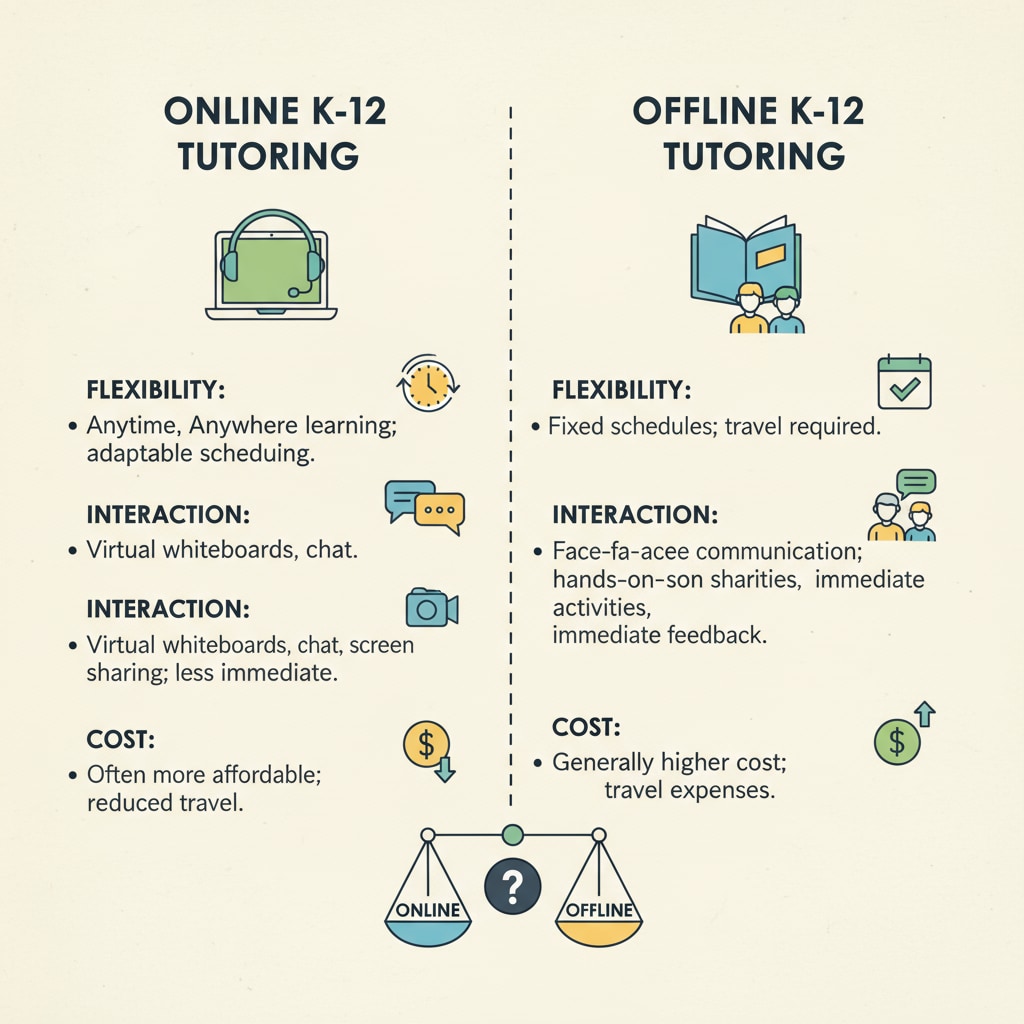In the realm of K12 education, the choice between online and offline tutoring significantly impacts students’ learning experiences, and parents’ trust plays a crucial role in this decision-making process. With the rapid development of technology, online tutoring has emerged as a popular alternative to traditional offline tutoring. However, parents often grapple with which option to choose based on their trust in the teaching methods, quality of education, and overall effectiveness.

The Appeal of Online Tutoring
Online tutoring offers several advantages that appeal to parents. Firstly, it provides unparalleled flexibility. Students can access tutoring sessions from the comfort of their homes, eliminating the need for travel. This is especially beneficial for families with busy schedules or those living in remote areas. For example, a student in a rural area can connect with an experienced tutor from a major city without leaving their house. Secondly, online tutoring platforms often have a wide range of tutors to choose from. Parents can browse through profiles, read reviews, and select a tutor who best suits their child’s needs. According to Educational Research, the variety of tutors available online has increased the satisfaction rate among parents. Additionally, online tutoring uses interactive tools such as video conferencing, virtual whiteboards, and educational software, which can make the learning experience more engaging and effective.

The Enduring Allure of Offline Tutoring
Offline tutoring, on the other hand, has its own set of strengths that earn parents’ trust. The face-to-face interaction between the tutor and the student creates a more personal and immediate connection. Tutors can closely observe students’ body language, facial expressions, and reactions, allowing them to adjust their teaching methods accordingly. This hands-on approach is often considered more effective for some students, especially those who may struggle with online learning. Moreover, offline tutoring provides a dedicated learning environment outside of the home, which can help students focus better. For instance, a quiet tutoring center can minimize distractions compared to a home environment. As stated by Education World, the physical presence of a tutor can enhance students’ sense of accountability and motivation.
When making a decision, parents also consider factors such as the reputation of the tutoring service, the qualifications of the tutors, and the cost. A well-established tutoring service with positive reviews is more likely to gain parents’ trust. Qualified tutors with relevant teaching experience and certifications can also instill confidence in parents. Additionally, cost is a significant factor, as parents want to ensure they are getting value for their money. Some parents may find online tutoring more cost-effective due to the lack of travel expenses and potentially lower hourly rates, while others may be willing to pay more for the in-person experience of offline tutoring.
Readability guidance: By examining these factors, it becomes clear that both online and offline tutoring have their merits. Parents’ trust is influenced by a combination of factors related to flexibility, interaction, reputation, and cost. To build a more comprehensive educational trust system, online and offline tutoring services can learn from each other. Online tutoring can enhance its personal touch by incorporating more one-on-one video interactions and providing better in-person support when needed. Offline tutoring can embrace technology to offer additional online resources and flexibility to students. This way, parents can make more informed decisions based on their trust in the services, ultimately benefiting their children’s education.


